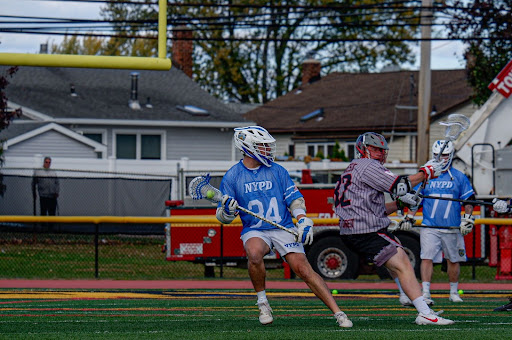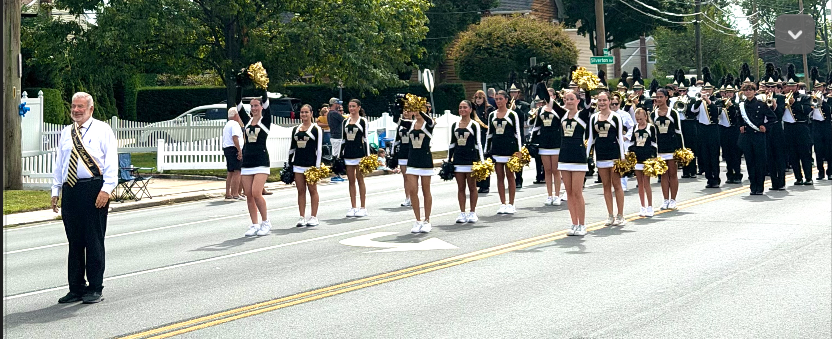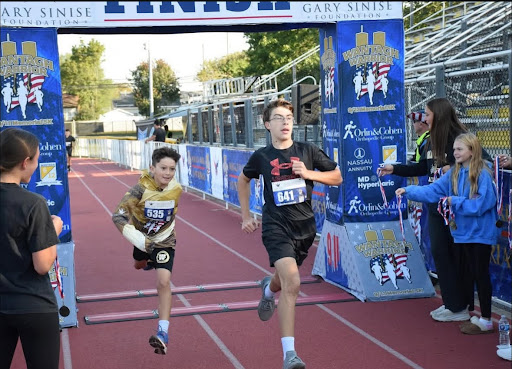Wantagh’s First AP Capstone Student Gets Published
February 11, 2022
Every year, the AP Research students enter the second part of the intensive AP Capstone program and are tasked with synthesizing their own research project, then submitting a full-length research paper and presentation to College Board at the end of the year. This year, Jennifer Rosen, a Wantagh senior and member of the fourth cohort of AP Capstone, became the first Wantagh student to get her AP Research paper published. Her paper, titled “Karen Ever After: The Career & Legal Consequences of Being the Racist White Lady in an Internet Meme,” looked at internet-documented instances of “Karens” going viral and attempted to determine whether or not these women suffered career or legal consequences as a result of their actions.
When asked about the inspiration for this study, Jen explained that, “With the coupled crises of COVID, the Election, and racial protest movements in 2020, there was a heightened feeling of stress amidst our society. With that, I found that there was a revival in the amount of “Karen” incidents trending across the Internet. … One particular incident that always stands out is that of Amy Cooper dubbed as “Central Park Karen.” In calling the police on an African American male who asked her to leash her dog, her video gained national attention and prompted talk across the country of America’s role in finding justice for the victims.”
Jen found that while many media outlets reported these “Karen” instances, few reported about the consequences of being outed as a “Karen,” so she sought to fill this gap in the academic conversation through her study.
After the close of the AP Research process, Jen decided to get her paper professionally published. She said it was a way to see her Capstone experience really come full circle. She said, “This may come across as a surprise but throughout the process of doing my research, I really struggled with finding academic papers about memes. It is an issue many often overlook due to the natural connotation it brings and how expansive Internet trends are. In publishing my paper, I hoped to be able to shed light on an issue that is not actively analyzed in academia and perhaps help future researchers as this is an issue that has serious implications in our ability to navigate the Internet.”
To tweak her paper to make it publishable, she worked with Dr. Benzscott and Dr. Hoffman from Stony Brook University over the summer. She met with them over Zoom “to discuss the research publication process” and improvements she could make to her paper.
Jen stated that the publication process was tedious and involved a lot of waiting to hear back from journals. She said, “I spent a lot of my time making spreadsheets breaking down journals by subject matter, impact factor, word limit, and other factors that would help me in making a decision.” One of the most important factors though was in analyzing a journal’s Aims & Scopes that essentially outlines what a journal is trying to accomplish and forward in publication. In finding the Journal of Student Research, I was particularly drawn to its interdisciplinary focus and the platform it gives students to voice and promote their research.”
The AP Research process often feels extremely taxing, so seeing her paper published in a real journal after a year of hard work was very gratifying for Jen. In regards to advice for other students who want to get their papers published, she said, “I would say to just go for it. If you are confident in your work and the issue you are promoting, share it with others! It shows such a level of confidence and initiative in your character that you took the time to learn more about your work and to interact with other professionals. It’s an excellent way to show your level of commitment to a cause and who knows- your paper could change the way people perceive or research a particular issue.”
Congratulations, Jen, and may you be the first of many Wantagh students taking their AP Research work to the next level!

(Ms. Flynn)














